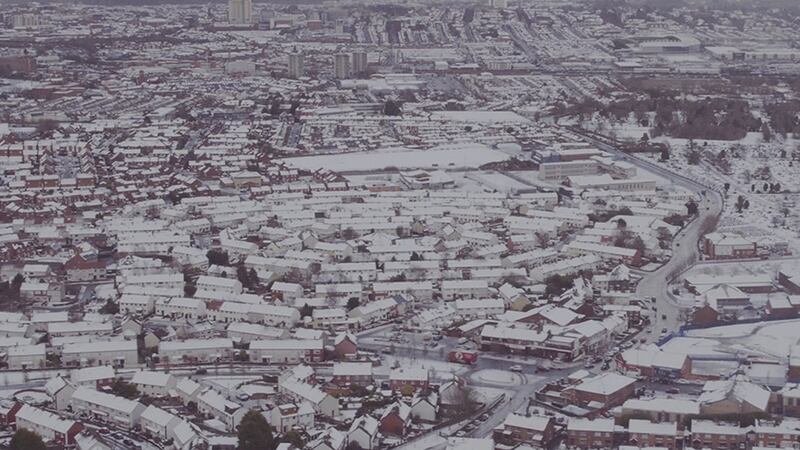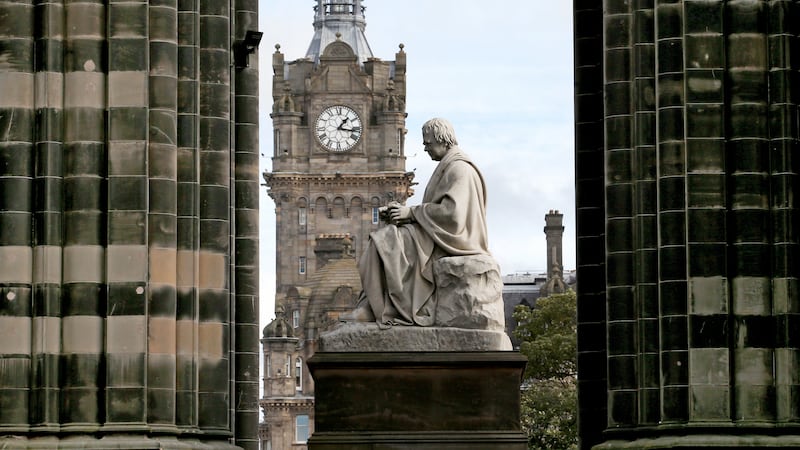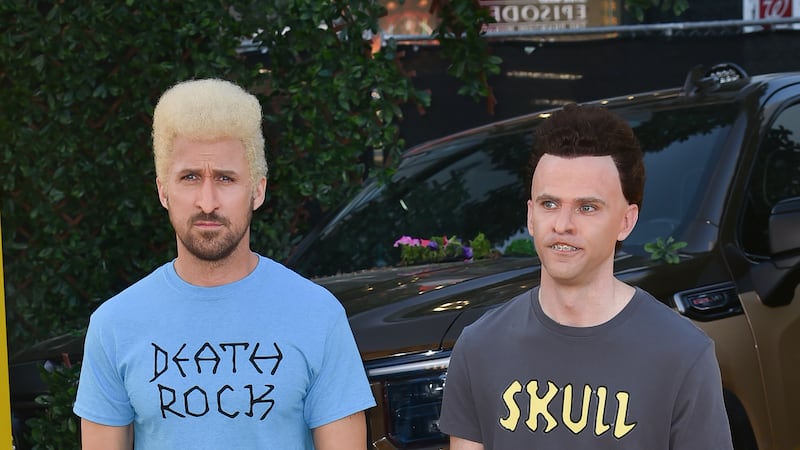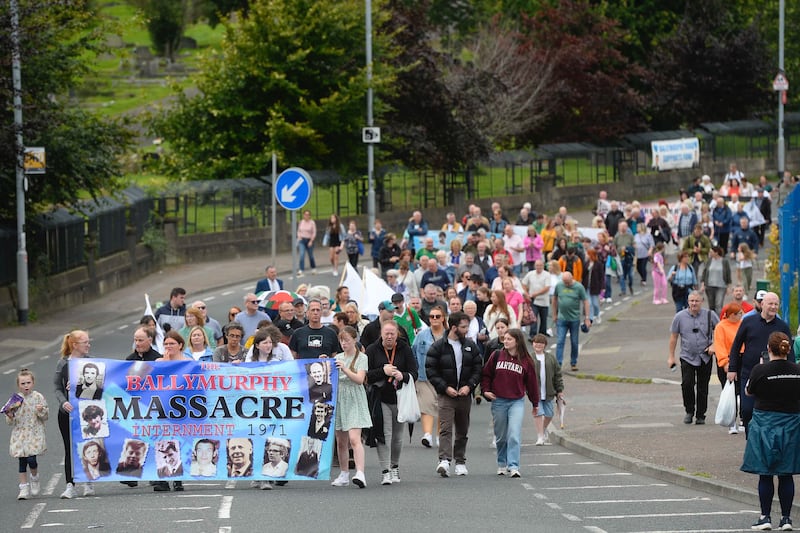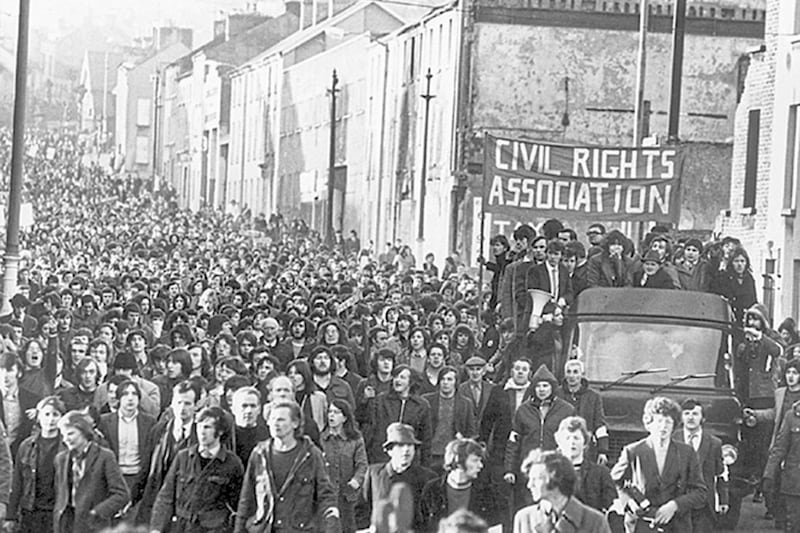It's beautiful when it happens, seeing a seed develop out of the dark soil to become a beautiful flower.
It's the same with truth. Sometimes it too lies hidden in soil, waiting for the time and the conditions to bloom into something beautiful.
That time and those conditions have surely arrived for the families of those killed during what has become known as The Ballymurphy Massacre and a new film is adding to the momentum towards the light and to the truth.
The film is Callum Macrae's The Ballymurphy Precedent which not only bears witness to the killing of 11 innocent people by the British Army - most, if not all, from the Parachute Regiment - over three days in August 1971 - when internment was re-introduced to the north - in the Ballymurphy area of west Belfast but it also makes the case that the killings should be viewed in the context of what happened in Derry just six months later on Bloody Sunday.
Macrae grew up in Nigeria and Scotland and studied painting at Edinburgh College of Art for five years, was a dustman for two years, ran a pirate radio station for six months and was a teacher for seven years but is now known as a courageous film-maker.
Now however, he is a renowned film-maker having made documentaries on Iraq, Mali and Mauritania but he has always been interested in Ireland and he tells me that is why he was so anxious to make The Ballymurphy Precedent.
"I follow Irish politics quite closely," he says. "I've always been really interested and was always concerned about what was going on and how the British media portrayed it.
"I had never heard of the Ballymurphy Massacre, but I was at the Respect Film Festival talking about my last film, No Fire Zone, and I got talking to Sean Murray who said he'd made a short film called
Ballymurphy. I went to see his film and that was the first I'd heard of what had happened.'
Macrae says that he, as someone interested in Irish politics, was shocked that he hadn't heard of it, and if he hadn't, obviously quite a lot of people in the UK hadn't either.
"I was very conscious of that fact and that was part of my motive in making the film,' he says.
I found Callum's last film one of the most visceral films I had ever seen and we know that over 100,000 were killed in Sri Lanka, unknown numbers in Iraq, but only 11 in Ballymurphy.
Does that not pale in significance compared to other atrocities? (Sometimes, journalists have to play devil's advocate!)
"No, but it's a difficult question,' Callum replies. "What I would say is, it's not a question of numbers, it's a question of individual tragedies and a question of what those tragedies represent.
"Of course what happened to the Tamil people in Sri Lanka was grotesque beyond imagination but this is not about how many people died, it's about the meaning of each individual tragedy and what caused the tragedy.
"The thing about Ballymurphy is that it happened 47 years ago and the truth has still never been told. The British and MoD have never admitted the truth and that is an ongoing and serious issue. It's not just prolonging the agony for the families, there's a block on peace and reconciliation. That compounds the original crime,' he says.
So how did Callum go about piecing together the events of almost 50 years ago?
"Well, I spent a lot of time looking at the history and the background as soon as you understand the truth of what happened you certainlly understand immediately that Bloody Sunday was not an isolated incident.
"The only reason Bloody Sunday was investigated in the end was down to the families fighting for justice and because it was filmed.
"Ballymurphy was not filmed. The media weren't there. That allowed the MoD and the British Army, and by implication the British government, to go on hiding behind their false explanation of what happened.
"That's intrinsically significant,' Macrae says.
If the logic forcefully put forward by The Ballymurphy Precedent is followed, then the Saville Inquiry report was flawed, according to Macrae.
"The inquiry rightly said the victims were innocent, but it also concluded that the government, Stormont and the MoD could not have predicted it,' he says.
"Once you understand what happened at Ballymurphy, you understand that that conclusion to the Bloody Sunday Inquiry does not stand up.
"In that sense, you can argue that the Saville Inquiry was Widgery II.
It effectively let the government and Stormont off the hook and blamed it all on a rogue commander of 1 Para.
"Bloody Sunday cannot be considered an isolated incident in a battle but in fact was part of a pattern. Then you begin to understand what led on from there. Bloody Sunday and Ballymurphy turned what started as an era for the Civil Rights Movement into a 30 year war and I personally cannot avoid the conclusion that if you understand what happened at Ballymurphy, you have to rethink what happened at Bloody Sunday and you have to rethink Britain's responsibility in turning that time for movement into war.'
Apart from the high politics above, I was fascinated by the psychologies involved. The mindsets of different regiments who battled each other in terms of who could out-machismo the other but on the other hand, there were the families, whom Macrae has described as "some of the most dignified and determined people' he had ever met.
"It's taken me a long time to get to know them quite well. They're strong, decent people. In the film, I didn't want to have to meet these people and introduce them as victims, I wanted to get to know them from their memories as kids.
"Ballymurphy was a very strong community as well as a very poor one. I wanted to get a feeling and know these people and know them as they were as kids so I could understand how awful it was what happened to them.
"Making a feature-length film, you can take your audience through the process and help them understand Ballymurphy.
"Even today, 'the Murph' has a reputation as a hardcore Republican stronghold with the prejudices that come with that which are built up by the British press and by the MoD's press handling of the media - 'this is an enemy heartland'. I want to show the truth that this is an ordinary housing estate with people trying to live decent lives and this is what was done with them.'
The Ballymurphy Precedent can be seen from 30 August on cinema release throughout the UK and Ireland and a shorter version will be shown on Channel 4.
It will be shorter because of ads and so on, and Callum is quick to point out that Channel 4 "have dealt very honourably with the film.'
